I'm writing an OPC UA Client in C# using OPC Foundation NuGet package.
I can succesfully connect to server, read and write variables and create subscriptions and monitored items.
Since I'd like to use this code in production environments, I need to use secure connection (username / password policy instead of anonymous connection).
This is how I'm doing it:
bool security = true; // Set here security enabled
Session session; // OPC UA Session
// 1. Generate client application
ApplicationInstance application = new() { ApplicationType = ApplicationType.Client };
// 2. Load application configuration
ClientConfiguration clientConfiguration = new() { DefaultSessionTimeout = _timeout };
ApplicationConfiguration configuration = new() { ApplicationName = "OPC Foundation SDK Personal Implementation", ClientConfiguration = clientConfiguration, ApplicationUri = "urn:OPC Foundation SDK Personal Implementation" };
application.ApplicationConfiguration = configuration;
// 3. Get the endpoint by connecting to server's discovery endpoint
EndpointDescription endpointDescription = CoreClientUtils.SelectEndpoint($"opc.tcp://{Target}", security);
// 4. Get server certificate
var rawCertificate = endpointDescription.ServerCertificate;
CertificateIdentifier serverCertificate = new(rawCertificate);
// 5. Add server certificate to trusted peers and trusted issuers
configuration.SecurityConfiguration.TrustedPeerCertificates.TrustedCertificates.Add(serverCertificate);
configuration.SecurityConfiguration.TrustedIssuerCertificates.TrustedCertificates.Add(serverCertificate);
// 6. Create application instance certificate
var appCertificate = new X509Certificate2("TestCertificate.der", "");
configuration.SecurityConfiguration.AddAppCertToTrustedStore = true;
configuration.SecurityConfiguration.ApplicationCertificate = new(appCertificate);
// Validate the configuration
configuration.Validate(ApplicationType.Client);
var result = application.CheckApplicationInstanceCertificate(true, CertificateFactory.DefaultKeySize);
// 7. Setup endpoint
EndpointConfiguration endpointConfiguration = EndpointConfiguration.Create(configuration);
ConfiguredEndpoint endpoint = new(null, endpointDescription, endpointConfiguration);
// 8. Create session
if (security)
session = Session.Create(configuration, endpoint, false, false, configuration.ApplicationName, (uint)configuration.ClientConfiguration.DefaultSessionTimeout, new UserIdentity("****", "****"), null).Result; // Username and password
else
session = Session.Create(configuration, endpoint, false, false, configuration.ApplicationName, (uint)configuration.ClientConfiguration.DefaultSessionTimeout, new UserIdentity(), null).Result; // Anonymous login to OPC UA server
If security is set to true, I get error "certificate chain validation incomplete". This is referred at my application instance certificate because without security the session is created successfully (so I'm sure the server certificate is being accepted).
The certificate I'm using is self-signed and it is generated with the following code:
public static void CreateApplicationCertificate(string certFilename, string keyFilename)
{
const string CRT_HEADER = "-----BEGIN CERTIFICATE-----\n";
const string CRT_FOOTER = "\n-----END CERTIFICATE-----";
const string KEY_HEADER = "-----BEGIN RSA PRIVATE KEY-----\n";
const string KEY_FOOTER = "\n-----END RSA PRIVATE KEY-----";
using var rsa = RSA.Create();
var certRequest = new CertificateRequest("cn=TestCertificate", rsa, HashAlgorithmName.SHA256, RSASignaturePadding.Pkcs1);
// This is a test and the certificate is being regenerated every time I run the code, so one day is enough.
var certificate = certRequest.CreateSelfSigned(DateTimeOffset.Now, DateTimeOffset.Now.AddDays(1));
// Export the private key
var privateKey = Convert.ToBase64String(rsa.ExportRSAPrivateKey(), Base64FormattingOptions.InsertLineBreaks);
File.WriteAllText(keyFilename + ".pem", KEY_HEADER + privateKey + KEY_FOOTER);
// Export the certificate
var exportData = certificate.Export(X509ContentType.Cert);
var crt = Convert.ToBase64String(exportData, Base64FormattingOptions.InsertLineBreaks);
File.WriteAllText(certFilename + ".der", CRT_HEADER + crt + CRT_FOOTER);
}
I added this line of code
configuration.SecurityConfiguration.AddAppCertToTrustedStore = true;
but nothing changed.
Any help is really appreciated.

